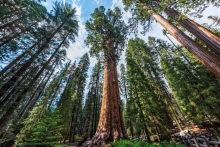May 30, 2023, 10 a.m.– Faculty of Medicine and Health Sciences, Doctor of Science, honoris causa (D.Sc.)
Amelia Tekwatonti McGregor

May 30, 2023, 10 a.m.– Faculty of Medicine and Health Sciences, Doctor of Science, honoris causa (D.Sc.)
Amelia Tekwatonti McGregor


There is broad agreement that Homo sapiens originated in Africa. But there remain many uncertainties and competing theories about where, when, and how.

McGill researchers are exploring a new technique that uses 3D printing and hydrogels. It has the potential not only to improve biomedical implants but could also be useful in the development of human-machine interfaces such as touch screens and neural implants. Biomedical devices like pacemakers or blood pressure sensors that are implanted into the human body need to be fabricated in such a way that they conform and adhere to the body – and then dissolve at the right time.

For 21st century authors, the odds of writing a critical hit are much higher if the novel takes place in the past, not the present or future. Between 2000 and 2020, about three quarters of the novels shortlisted for the National Book Award, the Pulitzer Prize, and the National Book Critics Circle Award took place in the historical past.

The COVID-19 pandemic challenged any notion that Asian Americans are a privileged, white-adjacent group skirting above racism.

Phosphatases of regenerating liver (PRLs) are a family of enigmatic proteins involved in cell growth and metabolism present in various species. From humans to fruit flies, they play a unique role in the growth of cancerous tumours and the spread of cancer throughout the body. New research emerging from McGill University is contributing to what is known about PRLs, which could potentially become an important tool in the development of cancer-fighting treatments.

Surveying the body sizes of Earth’s living organisms, researchers from McGill University and University of British Columbia found that the planet’s biomass – the material that makes up all living organisms – is concentrated in organisms at either end of the size spectrum.
The researchers spent five years compiling and analyzing data about the size and biomass of every type of living organism on the planet—from tiny one-celled organisms like soil archaea and bacteria to large organisms like blue whales and sequoia trees.

A new discovery about the structure of melanin has brought scientists one step closer to developing a new, potentially ultra-protective sunscreen derived from a biological substance found in nearly all organisms. Researchers from McGill’s Department of Chemistry, in collaboration with The Ohio State University and the University of Girona, have announced a major advance in understanding the fundamental structure of melanin and one of its components that turns light into heat, protecting the body from sun damage.

Black anglophones in Quebec experience more discrimination and report more barriers to mental healthcare – and overall lower mental health – than their French-speaking counterparts, according to a new study from McGill University researchers in the Department of Psychology.

First study of humans with a rare immunodeficiency reveals how the immune system protects the body against pathogens known to cause serious diseases, such as tuberculosis and COVID-19. The research involving McGill University, paves the way for new therapies to treat autoimmune diseases, chronic inflammatory diseases, and new approaches to vaccine development.

The first research report from STOPMTL.ca, a participatory mapping project of police stop experiences, presents preliminary data contributed by citizens of Montreal.

The Honourable François-Philippe Champagne, Minister of Innovation, Science and Industry, announced $1.4 billion in support of 11 large-scale research initiatives through the Canada First Research Excellence Fund (CFREF) today at Concordia University in Montreal. The CFREF grants are awarded through a highly competitive process to the top programs in their fields.

Astronomers from McGill University are part of an international team that has discovered 25 new sources of repeating fast radio bursts (FRBs), these explosions in the sky that come from far beyond the Milky Way. This discovery brings the total number of confirmed FRB sources to 50.

McGill University has achieved the performance targets set out in its Socially Responsible Investing (SRI) strategy, a full two years ahead of schedule. This milestone is highlighted in the 2022 Investment Committee Report on Socially Responsible Investing, presented yesterday to the McGill Board of Governors. This is the third annual report since the Board of Governors approved the five-year, eight-point implementation plan for decarbonizing the University’s endowment portfolio in April 2020.

Despite extensive research and encouraging findings, Alzheimer’s disease (AD) remains difficult to diagnose based on signs and symptoms alone. But what if one day, a blood sample during an annual check-up could be used to identify the disease? A recent McGill-led study has found that a new kind of blood test is as effective at detecting AD as lumbar punctures, one of the current methods used to diagnose AD.